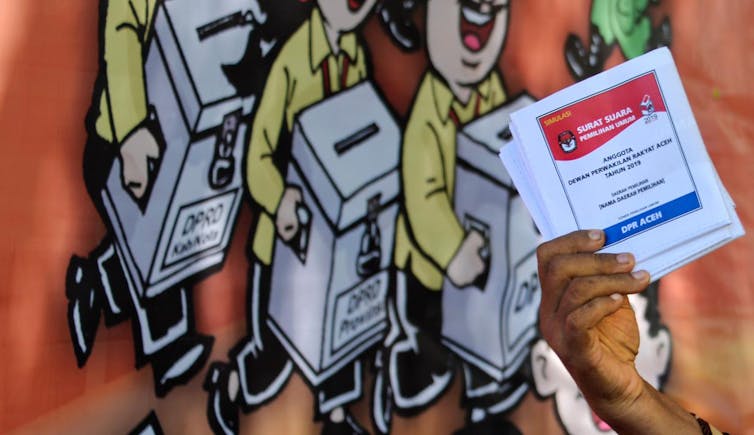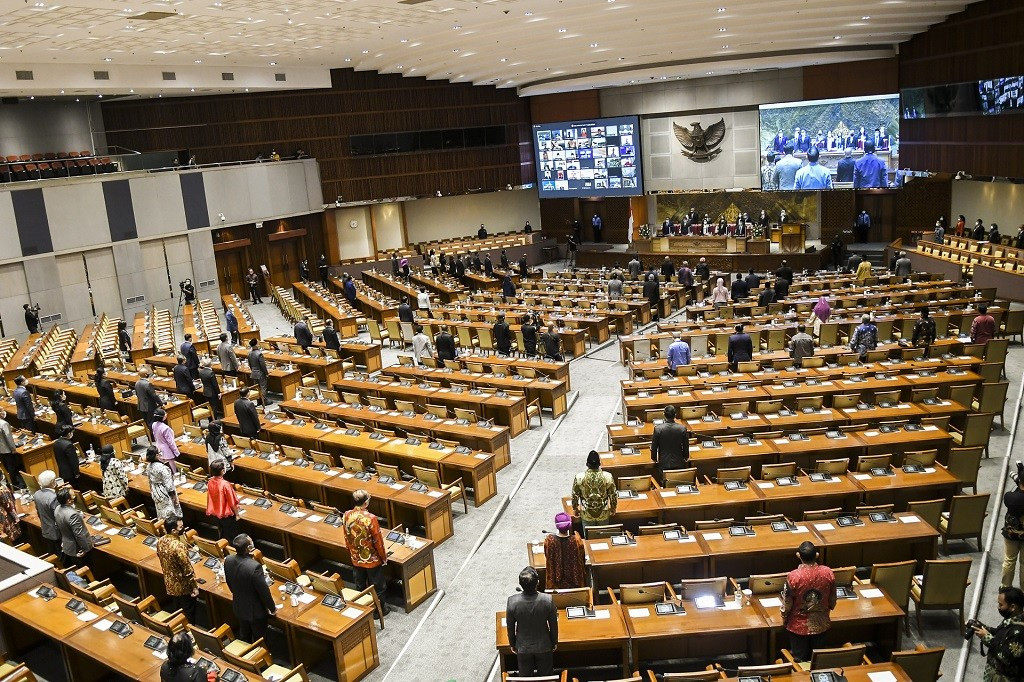Popular Reads
Top Results
Can't find what you're looking for?
View all search resultsPopular Reads
Top Results
Can't find what you're looking for?
View all search resultsHow Indonesia’s female candidates have used social media in political campaigns
Many political candidates in Indonesia have been taking advantage of social media to design campaigns that promote piety. Female political candidates in particular have started to utilise social media to bring about social change and encourage women to become politicaly engaged.
Change text size
Gift Premium Articles
to Anyone
I
n recent years, voters in the world’s third-largest democracy, Indonesia, have preferred to support candidates with solid religious personas and a lifestyle and appearances adhering to Islamic values. This preference is in line with the increasing trend towards Islamic piety in the Muslim majority country.
Many political candidates in Indonesia have been taking advantage of social media to design campaigns that promote piety. Female political candidates in particular have started to utilise social media to bring about social change and encourage women to become politicaly engaged.
During the 2019 election, many Indonesian female candidates running for political offiec used social media to bolster an Islamic image. Our latest research shows the pattern of social media usage among female candidates in the 2019 election in Banda Aceh, the capital of Aceh province which enforces sharia law.
The research finds that creating an Islamic image on social media helps the female candidates increase their electability and supports female participation and representation in politics.
Being pious is the key
Under Aceh’s sharia law, patriarchy dominates religious practices and social customs. But the proportion of female legislators in Banda Aceh has increased significantly in recent years.
In 2019 election, female candidates accounted for almost 42% of the total candidates fighting for 30 seats, according to data from the General Elections Commission. In the 2014 election, the portion of female candidates was only 14.8%.
We interviewed four female candidates, including one incumbent, who finally won the election, for the research.
They were Tati Meutia Asmara, Devi Yunita, Syarifah Munirah and Kasumi Sulaiman. Most of them came from Muslim-based political parties.
Knowing that most of the voters and the largest groups of digital media users in Banda Aceh were young women, they decided to launch their political campaigns on social media, especially Facebook and Instagram.
On their social media posts, we found that a majority of them tried to create a pious image. Posts saw them share images of their Muslim wardrobes and them engaging with religious events and activities. Tati, for instance, announced a visit to a community of Muslim women who promoted hijrah (becoming more Islamic).
She also posted on her Facebook and Instagram feeds a photo of a chaplain who was performing a pilgrimage to Mecca. Kasumi, another example, frequently shared religious quotes on her social media.

Voting count trial in the lead up to 2019 election in Aceh. AFP/Chaideer Mahyudin
These actions reflect the candidates’ belief that voter ratings were based more on personal characteristics, identity and lifestyle, rather than on issues and their policy programmes.
Projecting ideal Islamic female figures
They also reinforced the image of an ideal female Muslim by showing how they love and care for the family as well as being faithful to their husbands on the social media posts.
Tati, for example, built her image as a pious wife through her post that portrayed two pairs of sandals for her husband, with a caption that read, “I am sure, in the sole of your feet, my heaven lies now; for my beloved”.
Candidate Syarifah Munira branded herself a pious wife by posting a picture with Eid al-Adha greetings while kissing her husband’s hand. In Islam, obedience to a husband is widely believed as the path to heaven for women.
Kasumi, meanwhile, named all of her social media accounts ‘Bunda Mimi’ (Mother Mimi) as she tried to associate her feminine image with Islamic values.
Our research calculates that their social posts to improve their religious image increased during 2019 election campaign period. Up to 50% of the total number of candidates’ posts on Facebook showed these. While the number went up to 24% on Instagram. Tati, who won the election, was the candidate with the most social media posts showing her piety.
Breaking the barrier
In many Muslim countries, traditional media has supported an idea that it is unfavourable for women to join political race. Social media, however, has given women alternatives. Our study has shown how social media strategy can open more opportunities for women in the region to increase women’s political participation.
The research echoes other work showing that social media provides more significant chances in certain societies for female candidates to promote themselves and increase their chances of winning elections.
---
Haryanto, political science lecturer, Universitas Hasanuddin dan Rizkika Lhena Darwin, political science lecturer, Universitas Islam Negeri Ar-Raniry
This article is republished from The Conversation under a Creative Commons license. Read the original article.











